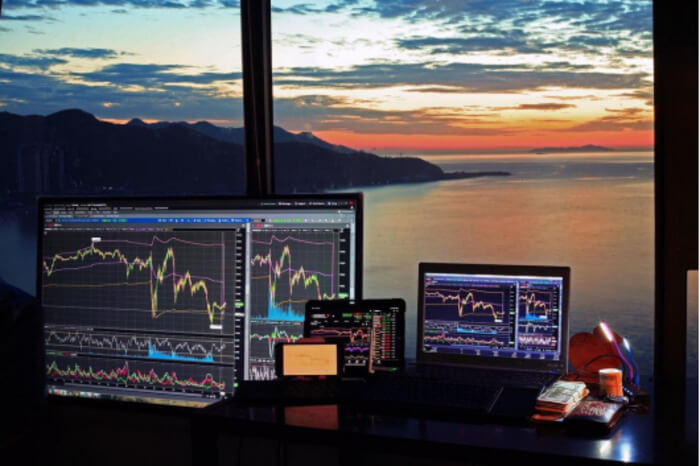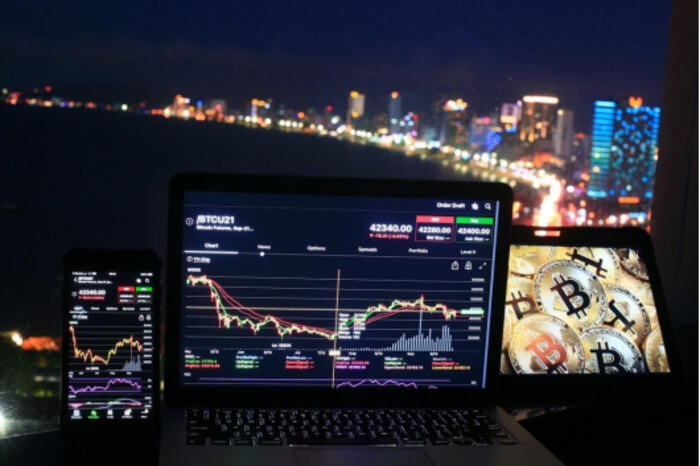I often hear people say that the Dow Jones electronic market can be used for hedging, and what is the US stock night market?
In this article, we will take you to a quick understanding of the pre-market and after-hours trading of the US stock market, the impact of the US stock market night market on the Taiwan Index futures, and the precautions for operating the US stock market electronic trading.
Image credit: Pixabay (DavidVives)
What is night trading?
Night trading, also known as electronic trading, or after-hours trading, refers to transactions that are carried out after the end of normal normal trading hours (intraday). The purpose of using electronic trading is to break through the limitations of time and space and expand the investment scale of the market. The detailed introduction of advantages and disadvantages will be mentioned later in the article.
What is the US stock market night market?
In fact, for people in different time zones, the U.S. stock market night market may have different meanings. how to say?
The U.S. stock market has three trading sessions: pre-market time, standard U.S. stock trading hours, and after-hours U.S. stocks.
For example: the normal trading hours of U.S. stocks are 09:30-16:00 EST during the day, which is 21:30 pm-04:00 am Taiwan time (summer time). If it is winter time, it will be delayed by one hour. Due to this time difference, many Taiwan stock investors will be confused by this time period, and mistakenly regard the night market of US stocks as the night market time of Taiwan.
Why do U.S. stock night trading?
After-hours trading allows investors to react to company announcements or real-time market movements before or after normal trading hours.
Generally, if a US company has major news to be released, such as revenue, financial report, or negative news such as CEO resignation, it usually chooses after the stock market trading hours and before get off work, that is, from 16:00 to 18:00. period of time to avoid drastic fluctuations in the company's stock price.
So if you want to buy or sell as quickly as possible based on the latest market developments, you need to do after-hours trading.
Image credit: Pixabay (sergeitokmakov)
What impact does the US stock market have on the Taiwan index futures?
Because of the relatively small market, Taiwan stocks are more susceptible to the influence of the world's economic power, the US stock market. Therefore, once there is any trouble in the US stock market, it will also appear in Taiwan stocks. Sometimes the market in the middle of the night is more volatile than the market in the morning. Investors who have index futures on the trading desk usually pay close attention to the trading hours of U.S. stocks at night.
Many traders will pay attention to the three major U.S. stock indexes at the same time: Dow Jones, S&P S&P, Nasdaq Nasdaq, and observe the wind direction of U.S. stocks to decide what to do in the Taiwan stock market or the Taiwan index futures. There is also a Feihan Index, which is related to the semiconductor industry. Since the Taiwan market is dominated by semiconductors, Taiwan stock investors often refer to the Feihan Index.
For example, the electronic trading of U.S. stocks plummeted after trading hours. Investors holding spot stocks may be worried that Taiwan stocks will fall together when the market opens the next day, so they will sell short to avoid risks.
The advantages and risks of night trading in US stocks
There are certain advantages to trading outside the market hours, but the advantages themselves may also be disadvantages, depending on personal considerations.
- Advantages of over-the-counter trading:
Pre-emptive trading on the latest news: The ability to trade after the normal market close allows you to react quickly to breaking news or new information before the market opens the next day.
Pricing Opportunities: After-hours trading is based on the closing price of the day. Because there is only one price, investors do not need to pay attention to the stock price at any time.
Convenience: Some investors may be in different time zones, or may not be able to trade during business hours, and prefer to trade during off-peak hours, and night trading can provide this additional flexibility.
- Disadvantages of OTC trading:
Pricing risk: During normal trading hours, there may be more and more favorable price opportunities, but after-hours trading can only be limited to the closing price of the day.
Low liquidity: There are fewer participants during the night trading session, so most stocks have limited liquidity, which can create wider bid-ask spreads, or make orders less easy to fill.
Volatility: Pre-market and post-market trading is highly volatile and may result in high price volatility as there are few participants.
Image credit: Pixabay (sergeitokmakov)
Precautions for operating US stock night trading
Investors in Taiwan, what precautions should be taken when trading US stocks?
The stock price fluctuates greatly before and after the market, and the reference value of the stock price is reduced. There may be a price and no market, and it is easy to be harvested by the bookmaker. Therefore, trading is not recommended.
For out-of-hours trading, different securities firms have different trading restrictions and extended periods. Not every stock can be traded, and of course not every securities firm offers pre-market and after-market trading.
The US market has summer and winter time adjustments, but there is no such time adjustment in Taiwan, so we need to note that winter time is one hour longer than summer time. For example: it is also 16:00 EST, 04:00 in Taiwan in summer time, and 05:00 in winter time.
Summarize
Many economic indicators will be released before the market opens at 8:30 in the morning, and most companies will release major news such as profit reports after the market closes, so the extended trading hours before and after the market are an opportunity for investors to take advantage of. In addition, the futures and foreign exchange markets can be traded 24 hours a day, and many stock investors will also conduct pre-market and post-market operations according to the trends of these two markets.
 2022-08-05
2022-08-05
 5797
5797







 简体中文
简体中文
 ภาษาไทย
ภาษาไทย
 繁體中文
繁體中文
 Indonesia
Indonesia











